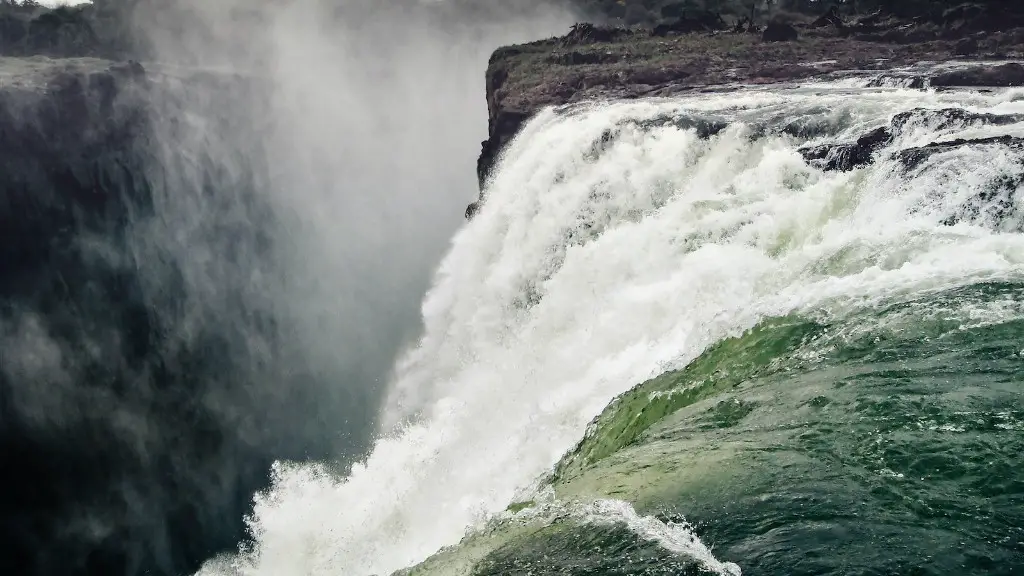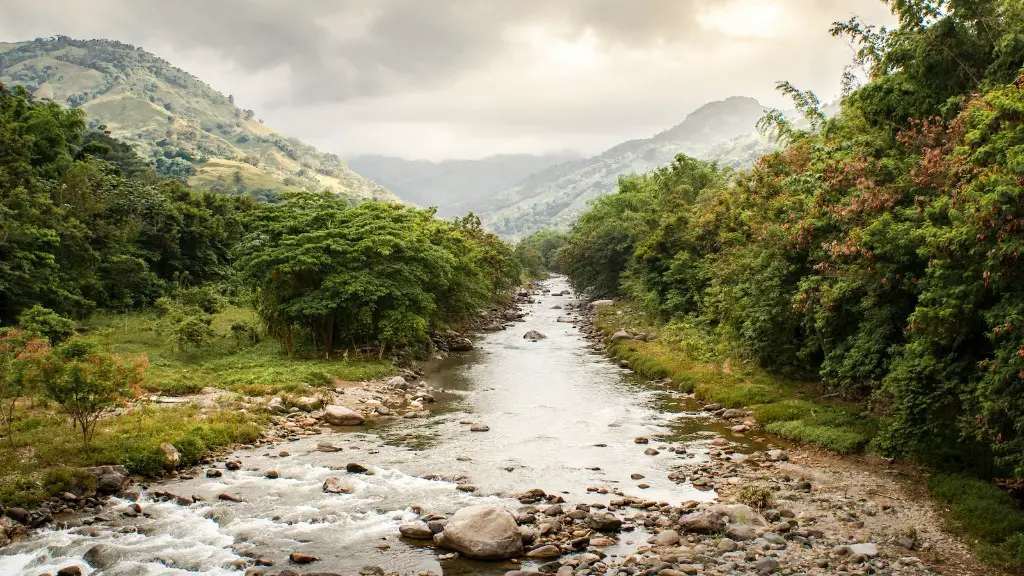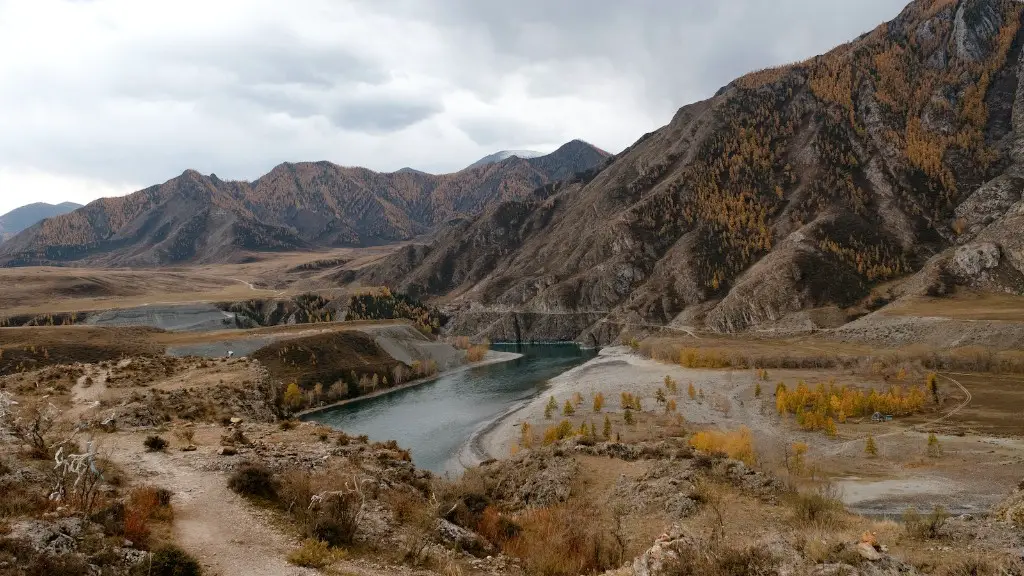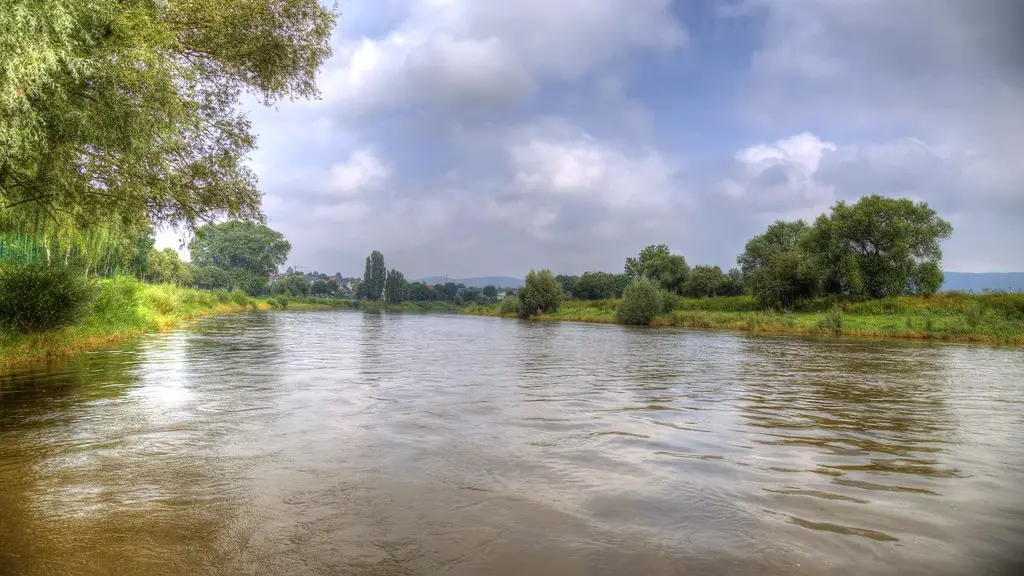The Nile River is one of the most significant and well-known river systems in the world. It has often been considered the longest river in the world, with its source in Uganda, and flowing through Egypt and Sudan before reaching the Mediterranean Sea. The Nile River is of great importance to people living in Africa, especially those in the countries along its banks.
The Nile River runs through the continent of Africa, and as such, is an integral part of many African cultures and lifestyles. It has shaped much of the continent’s geography, politics and economy. It is the lifeline of Egypt, providing drinking water, food, electricity, transportation and irrigation. It is also a major source of recreation, with its banks providing some of Africa’s most stunning scenery and activities like fishing, boating and camping.
At approximated 4,258 miles long, the Nile River serves as a border for 11 African countries, and has an estimated population of about 400 million people living on its banks. The river has been an essential part of economic and social development in the continent for centuries, from ancient civilizations to modern-day industrial projects. It has been an essential source of water for drinking, agriculture and economic activities. The Nile is also an important source of hydroelectric power, used to generate electricity for countries along its banks.
The Nile River serves many purposes for people in Africa, from providing water for agriculture and industry, to providing a source of recreation. The river has also been a source of historical importance and is a critical component of many African cultures, which view it as a source of life and sustenance. Its waters have been used in religious ceremonies and its banks read in ancient texts and manuscripts across Africa.
The Nile River has been subjected to a great deal of human activity, including deforestation, pollution and development. In recent years, countries in the Nile’s basin have increasingly been utilizing the river’s resources, while often disregarding its fragile ecosystems. Despite this, the Nile River remains a major economic and social resource for the African continent, providing water and energy to millions of people.
Overall, the Nile river is located within the African continent. It is a significant source of life and sustenance for people in the African countries along its banks. In recent years, it has been subjected to heavy human activity, but it remains a crucial resource for the continent.
The Nile in Ancient Times
Much of our knowledge of the Nile River in ancient times comes from surviving texts written by ancient Egyptians and Greeks. These writings help historians understand the importance of the Nile to ancient civilisations and the ways in which they utilized it, such as trade and agricultural irrigation. Some of the oldest surviving images of the Nile depict boats as far back as 3500 BC, implying an already vibrant civilization by that time.
The Nile was used as a trade route and since the river flowed through several African countries, this facilitated the trading of goods between them. Ancient Egypt was particularly important in this respect, as it had access to many coastal regions that allowed it to trade with the wider Mediterranean world. In addition, the Nile played an important role in the religion of Ancient Egypt. One of the most important gods was believed to be Hapi, the god of the Nile’s source, who was responsible for the abundance of the land from which Egypt’s civilization was born.
As well as playing a role in trade and religion, the Nile was also an important source of food for Egypt. The Nile’s seasonal floods deposited nutrient-rich silt on the banks of the river, which made it an ideal environment for cultivating crops. The abundance of food provided by the Nile allowed the Egyptians to sustain their large population without having to resort to farming or hunting.
In addition to its practical uses, the Nile was a source of spiritual significance to many ancient cultures. The river was a source of life and abundance, and many worshipped it as a god in its own right. Its annual flooding of the banks reminded people of the cyclical nature of life, and its unpredictable forces were a source of awe and mystery.
Environmental Issues Surrounding the Nile
The environmental impact of the Nile River is significant. As it flows through countries such as Egypt, Sudan and Ethiopia, it carries a large amount of sediment, which can affect the water’s fertility and quality. In addition, the river can suffer from pollution, overfishing and excessive extraction of water. These can have long-term effects on the people and wildlife that depend on the river.
In recent years, there has been a great deal of tension between countries that share the Nile’s basin. In particular, Egypt, Sudan and Ethiopia have frequently argued over the usage of the Nile’s resources and the potential change of the river’s course. These discussions have led to a greater focus on the environmental issues surrounding the river, and how these can be addressed.
Local organisations have been set up in the countries that share the Nile’s basin in order to work towards protecting it from pollution and other environmental threats. These organisations are largely funded by donations from companies and individuals, and have had some success in raising awareness about the importance of preserving the river’s health. Additionally, researchers have been studying the Nile’s ecosystems in order to better understand the effects of human activity and to find solutions to any negative impacts.
Overall, the river’s environment is an area of serious concern. The effects of overfishing, pollution and excessive extraction of water can have long-term damage to the health of the river and the people and wildlife that depend on it. To address these issues, local efforts to raise awareness and research into the river’s ecosystem are necessary.
The Nile Basin Initiative
The Nile Basin Initiative (NBI) was set up in 1999 in an effort to manage and protect the river’s resources. The NBI is an inter-governmental organization that is made up of 11 African countries and is focused on the sustainable management and development of the Nile Basin. It focuses on crucial areas such as water resources management, food security and energy.
The NBI has been instrumental in helping to promote cooperation between the countries sharing the Nile’s basin, and has worked to create an equitable and sustainable use of the river’s resources. It has improved the lives of millions of people by providing access to clean drinking water, sanitation and hygiene. It has also helped to develop better irrigation systems, improve energy security and create jobs.
The NBI has helped to promote greater understanding between the countries in the Nile Basin, and has been a driving force in improving people’s access to resources and opportunities. It has also been a major force in the fight against poverty, by providing assistance in areas such as education and health.
Overall, the Nile Basin Initiative has been a positive force in Africa, helping to ensure the sustainable management and development of the Nile river’s resources. It has helped to promote cooperation between the countries in the basin, and has made a significant contribution to people’s access to resources and opportunities.
The Economic Impact of the Nile
The Nile River is one of Africa’s most important economic resources, with the countries along its banks relying heavily on it for trade and industry. In particular, Egypt is heavily dependent on the Nile for irrigation, hydropower and transportation. In recent years, economic activity has increased along the river’s route, with more people turning to it as a source of food, energy and transport.
In addition, the countries that share the Nile’s basin have been increasingly working together to exploit the river’s potential. For example, a number of hydroelectric power plants have been built along the river in an effort to generate electricity for countries in the region. In addition, a number of private companies have invested in projects such as irrigation and transportation, which have helped to create jobs and stimulate economic activity.
The Nile River has also been an important source of income for many countries, as it is home to a wide array of wildlife. Wildlife tourism is an important source of income for countries such as Egypt, and has helped to generate jobs and promote sustainable development. In addition, countries have imposed taxes on the use of the river, which has helped to generate additional income for the countries that share the Nile’s basin.
Overall, the Nile River is an essential economic resource for the countries that share its basin. It provides a source of irrigation, hydroelectric power and transportation, as well as a source of income. In addition, it has helped to create jobs, promote economic activity and attract private investment.
Conclusion
The Nile River is one of the most important and well-known river systems in the world. It is located in the African continent and has been an integral part of many cultures and lifestyles for centuries. It has shaped much of the continent’s geography, politics and economy, and provides water and energy to millions of people.
In recent years, the river has been subjected to a great deal of human activity, and the countries in the Nile’s basin have worked together to improve the river’s environment. The Nile Basin Initiative hasbeen instrumental in helping to promote cooperation between the countries sharing the Nile’s basin, and has made a significant contribution to people’s access to resources and opportunities.
The Nile River is also an important source of income for many countries, as it is home to a wide array of wildlife and has been an important source of trade and industry. In addition, it is an essential economic resource for the countries that share its basin.





